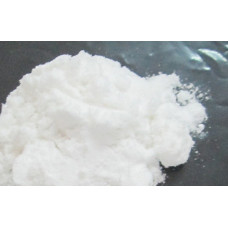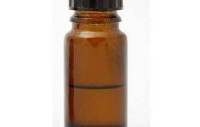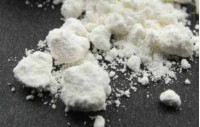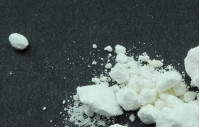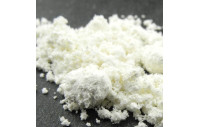Buy MDAI for sale online from USA vendor
Discount program: 5% OFF for the second order, 7% OFF for the third order.
Shop with us securely! We offer re-shipment guarantees.
We always provide new, legal products of impeccable quality.
Please make sure that the product is legal in your country and not under any restrictions before ordering.
We do not sell pharmaceutical products or controlled substances.
What is MDAI
The chemical molecule MDAI (5,6-methylenedioxy-2-aminoindane) was created in the 1990s at Purdue University by a team of scientists led by David E. Nichols. It is a non-neurotoxic, highly selective serotonin-releasing agent (SSRA) with entactogen effects in humans. In this post, we will examine the history, effects, and potential hazards of MDAI and answer commonly asked concerns regarding the substance.
The History of MDAI
In the 1990s, a team of scientists led by David E. Nichols of Purdue University produced MDAI for the first time. The objective was to create a new class of chemicals that might be utilized to study serotonin's effects on the brain scientifically. The molecule was developed to be a highly selective serotonin-releasing agent, allowing it to selectively enhance serotonin levels in the brain without disrupting other neurotransmitters.
The Effects of MDAI
MDAI is a non-neurotoxic, highly selective serotonin-releasing substance with entactogen effects in humans. Empathy, pleasure, and greater sociability define these effects. In addition, MDAI has been demonstrated to possess anxiolytic qualities, suggesting that it can alleviate anxiety and induce a sense of calm. However, it is essential to note that the precise effects of MDAI depend on the individual, the amount, and the manner of administration.
The Potential Dangers of MDAI
Although MDAI is regarded as a non-neurotoxic and highly selective serotonin-releasing agent, it is essential to be aware of the potential risks connected with its usage. Potential risks include a rapid heartbeat, high blood pressure, and agitation. In addition, the long-term consequences of MDAI usage are little understood, and tolerance and dependency on the substance are possible.
MDAI has not been authorized for human ingestion by any regulatory organization, and its usage is banned in many countries. Consequently, it is essential to understand the legal implications of MDAI use.
Questions asked frequently
What exactly is MDAI?
The chemical molecule MDAI (5,6-methylenedioxy-2-aminoindane) was created in the 1990s by a team of Purdue University researchers. It has entactogen effects on humans as a non-neurotoxic, highly selective serotonin-releasing agent (SSRA).
What consequences does MDAI have?
MDAI can induce empathy, euphoria, improved sociability, and decreased anxiety. However, the precise effects of MDAI depend on the individual, the dose, and the route of administration.
Is it safe to use MDAI?
Although MDAI is regarded as a non-neurotoxic and highly selective serotonin-releasing agent, it is essential to be aware of the potential risks connected with its usage. Potential risks include a rapid heartbeat, high blood pressure, and agitation. In addition, the long-term consequences of MDAI usage are little understood, and tolerance and dependency on the substance are possible.
To prepare the content, the following materials were used:
- FDA Substance Registration System
- Hazardous Substances Data Bank. National Library of Medicine. 28 August 2008. Retrieved 22 August 2014. 3,4-Methylenedioxymethamphetamine
- Liver transplant modulates gut microbial dysbiosis and cognitive function in cirrhosis. PDF . By HoChong Gilles, Scott C Matherly, Mohammed S Siddiqui, Puneet Puri...
- Differential impact of hyponatremia and hepatic encephalopathy on health-related quality of life and brain metabolite abnormalities in cirrhosis . By Jasmohan Bajaj
- An overview of alcohol and other drug issues
- Medicating the mind: a Kantian analysis of overprescribing psychoactive drugs B A Manninen
- The pharmacological basis of opioids Carla Ghelardini, Lorenzo Di Cesare Mannelli and Enrica Bianchi
- Ask Dr. Shulgin Online ARCHIVE: June 3, 2004
- Inhibition of plasma membrane monoamine transporters by β-ketoamphetamines. Nicholas V Cozzi, Michael KSievert, Alexander T Shulgin, Peyton JacobIII, Arnold Eruoho
- Schedules of Controlled Substances: Placement of Methylone Into Schedule I
- Bioanalysis of new designer drugs. Wohlfarth A, Weinmann W.
- New Psychoactive Substances (including synthetic cannabinoids, mephedrone, and more)
- Future Synthetic Drugs of Abuse. Donald A. Cooper. Drug Enforcement Administration McLean, Virginia
- Designer drugs: a medicinal chemistry perspective. F. Ivy Carroll Anita H. Lewin S. Wayne Mascarella Herbert H. Seltzman P. Anantha Reddy
- Synthetic cannabinoids in Europe
- Pharmacological Effects of MDMA in Man. By Enno Freye
- Drug Use in Relation to Outcome of Mammography Screening. von Euler-Chelpin M, Wu W, Vejborg and Lynge E
- DEA Drug Scheduling
- Electrophysiological Effects of Trace Amines on Mesencephalic Dopaminergic Neurons.Ada Ledonne, Nicola Berretta, Alessandro Davoli, Giada Ricciardo Rizzo, Giorgio Bernardi and Nicola Biagio Mercuri
- Electrophysiological evidence for a reciprocal interaction between amphetamine and cocaine-related drugs on rat midbrain dopaminergic neurons.Scarponi M, Bernardi G, Mercuri NB.
- Overdose of Drugs for Attention-Deficit Hyperactivity Disorder: Clinical Presentation, Mechanisms of Toxicity, and Management. Henry A. Spiller, author Hannah L. Hays Alfred Aleguas.
- Dose-dependent effectiveness of wheel running to attenuate cocaine-seeking: impact of sex and estrous cycle in rats. Peterson AB, Hivick DP, Lynch WJ.r.
- FDA Drug Safety Communication: Safety Review Update of Medications used to treat Attention-Deficit/Hyperactivity Disorder (ADHD) in children and young adults
- ADHD Medications and Risk of Serious Cardiovascular Events in Young and Middle-aged Adults
- Controlled Substances Act
- The Art of Drug Synthesis (Wiley Series on Drug Synthesis)
- Cannabis: domestic cultivation widespread
- A review of the influence of functional group modifications to the core scaffold of synthetic cathinones on drug pharmacokinetics
1kg $1590
1kg $1690
100g $580
1kg $1690
1kg $1690
100mg $840
1kg $1590
1kg $1690
1kg $1590
1kg $1690
500g $1080
500g $1080

